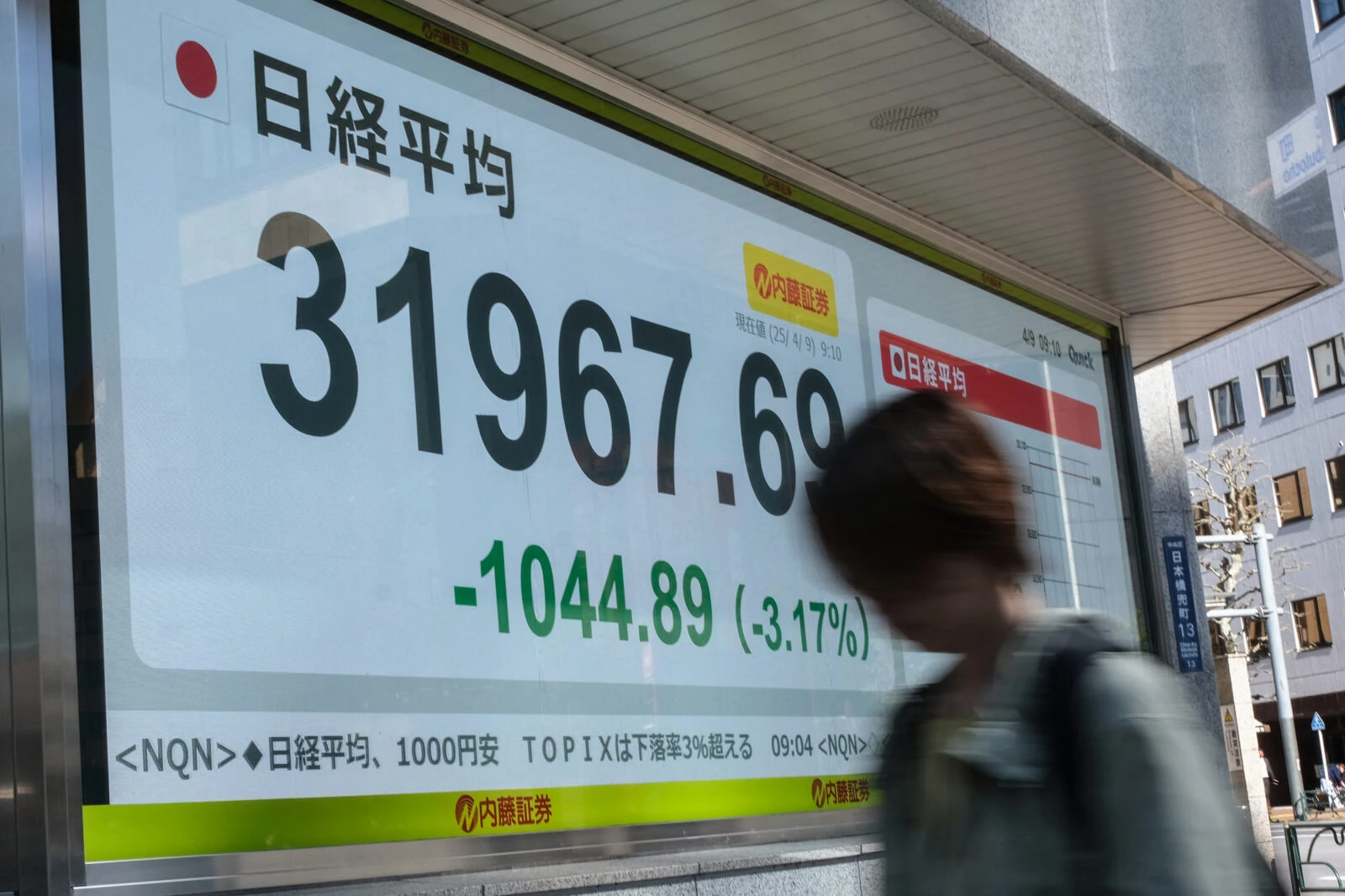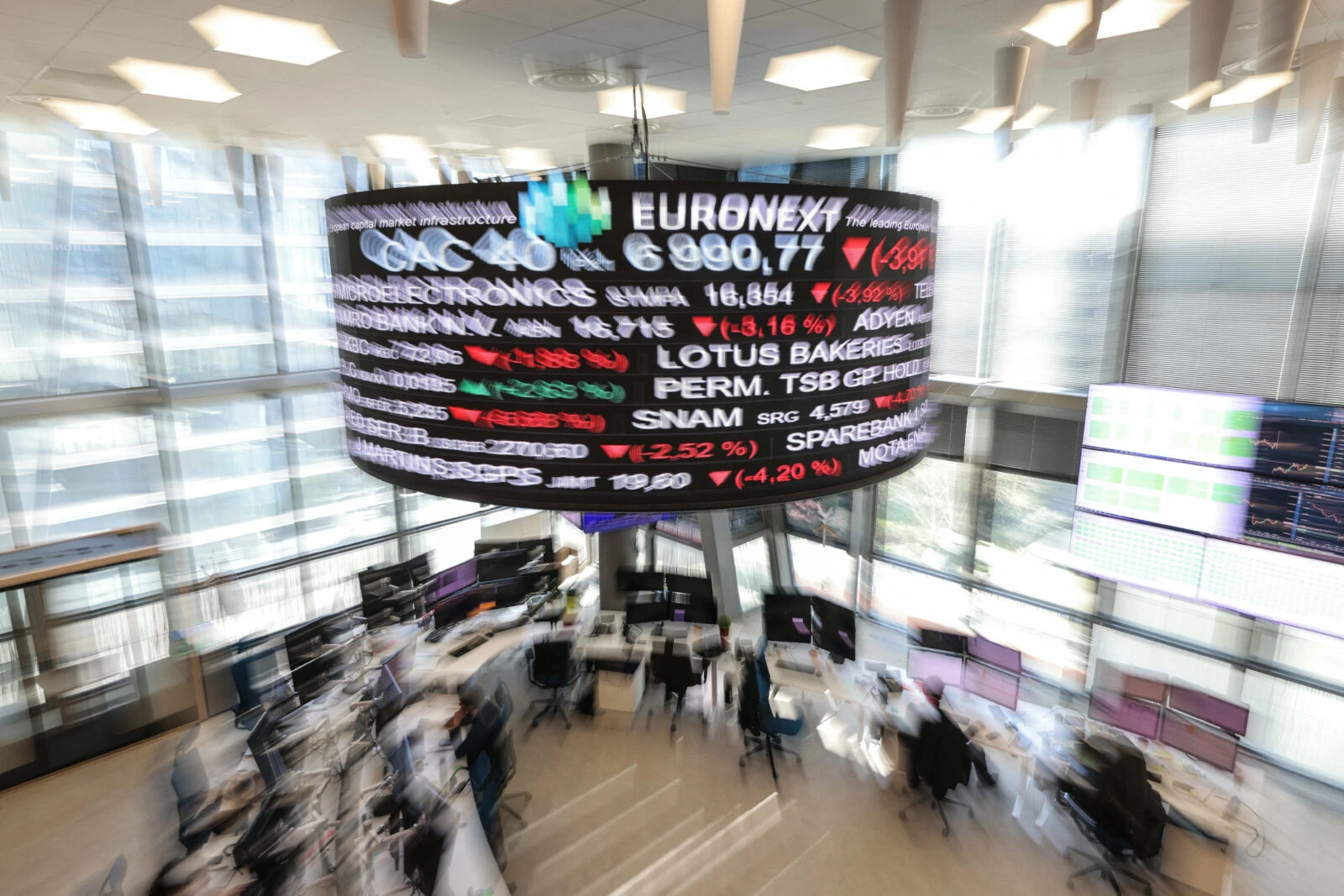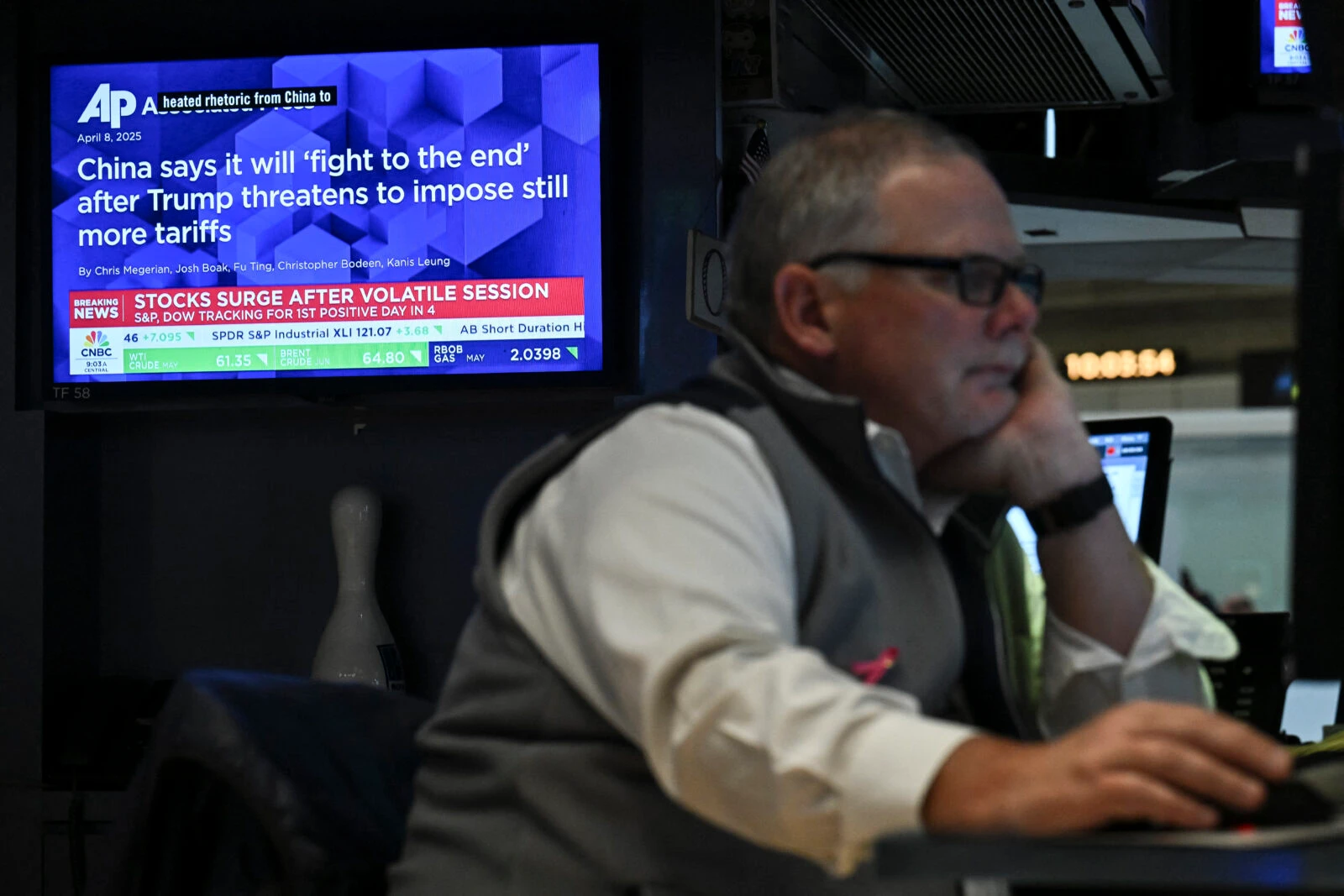Markets tumble again as White House slaps 104% tariff on China
 A woman walks part a board displaying average stock prices at the Taiwan Stock Exchange in Taipei on April 7, 2025. (AFP Photo)
A woman walks part a board displaying average stock prices at the Taiwan Stock Exchange in Taipei on April 7, 2025. (AFP Photo)
Global markets continued their downward trajectory on Wednesday as the United States implemented a 104% tariff on Chinese goods, escalating the trade conflict.
The move followed President Donald Trump’s announcement of an additional 50% levy in retaliation for Beijing’s response to the initial 34% duty imposed last week. With China already facing a 20% tariff, its exporters are now contending with total duties of up to 104%.
The latest development sparked another market sell-off, wiping out a short-lived rebound that had been driven by earlier Trump comments hinting at ongoing trade discussions with several countries.
Asia resumed its retreat on Wednesday, though some markets managed to pare early losses. Shanghai edged up 0.2% to 3,152.96 amid speculation that state-backed funds were stepping in to support the market, while Jakarta also posted gains.
Tokyo’s Nikkei 225 plunged as much as 5% during the day due to a stronger yen, before trimming losses to close down 3.93% at 31,714. Taipei’s benchmark TAIEX index tumbled more than 5%, while Singapore dropped over 2%. Hong Kong’s Hang Seng Index initially fell 1.6% to 19,815.24 but rebounded to close up 0.7% at 20,264.49, while the Shanghai Composite rose 1.3% to close at 3,186.81. Sydney and Seoul, however, ended the day with losses of over 1%.

In Wellington, losses were tempered by news that New Zealand’s central bank had cut interest rates, offering some relief to investors.
Meanwhile, Thailand and Vietnam—hit with U.S. tariffs of 36% and 46%, respectively—experienced milder market reactions, each closing down less than 1%.
Oil prices also took a hit, briefly plunging more than 4%. Both major benchmarks fell to their lowest levels since the COVID-19 pandemic, reflecting growing fears that a global economic slowdown triggered by escalating trade tensions will erode demand.
West Texas Intermediate dropped 3.4% to $57.55 per barrel, while Brent North Sea crude slid 3.1% to $60.9.
On the other hand, the safe-haven asset gold broke its recent downward trend, rising 1.24% to $3,020. Bitcoin, meanwhile, continued its sluggish performance, hovering below the $80,000 mark with a 3.01% decline to $77,115.
European markets slide as Trump tariffs take effect
European stock markets opened sharply lower on Wednesday as U.S. tariffs on EU goods took effect, deepening concerns about a global economic slowdown. Goods from the European Union are now subject to a 20% tariff when entering the United States, while the U.K. faces a 10% levy introduced on Saturday.
France’s CAC 40 and Germany’s DAX were both down around 1.8% in early trading, while London’s FTSE 100 fell 1.9%.

Investor anxiety over a possible global recession weighed heavily on key sectors, including luxury goods, automakers, banks, and pharmaceuticals—an industry widely expected to be the next target of U.S. tariffs.
British drugmakers AstraZeneca and GSK led losses on the FTSE 100, both falling over 4%. In Copenhagen, Denmark’s Novo Nordisk—Europe’s most valuable company and the maker of Ozempic and Wegovy—dropped about 5%. French pharmaceutical group Sanofi and German biotech firm Sartorius also slid around 5%.
Tech and auto stocks were not spared. France’s STMicroelectronics tumbled more than 4%, and carmaker Stellantis—whose brands include Jeep, Fiat, and Peugeot—fell over 3%.
Oil majors BP and Shell dropped more than 3% in London as oil prices continued to decline amid fears that worsening trade tensions will suppress global demand.
Harsh tariffs crush lingering optimism
“There can be permanent tariffs, and there can also be negotiations,” Trump said during a press conference on Monday.
Upon these remarks, stock exchanges rallied on Tuesday amid optimism for a potential rebound from the heavy losses suffered on Monday. Major Asian markets posted modest gains, led by Japan’s Nikkei, which closed up 6%. Taiwan was the exception, continuing its decline with a 4% loss. European markets followed suit, rising steadily to close with average gains of around 3%.

On Wall Street, all major U.S. indices surged more than 3% in early trading, but the momentum quickly faded after the White House reaffirmed its hardline stance on Chinese imports. “There will be 104% tariffs going into effect on China tonight at midnight,” spokeswoman Karoline Leavitt announced Tuesday, cutting the rally short and dampening investor optimism.
By the close of Tuesday’s session, the Dow Jones Industrial Average (DJIA), a benchmark index tracking 30 large U.S. companies, dropped 0.84%, or 320.01 points, to end at 37,645.59. The S&P 500, which represents 500 of the largest publicly traded companies in the U.S., declined 1.57%, or 79.48 points, to finish at 4,982.77. The Nasdaq Composite, heavily weighted toward technology stocks, fell 2.15%, or 335.35 points, closing at 15,267.91.



